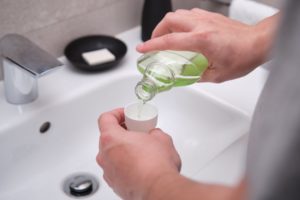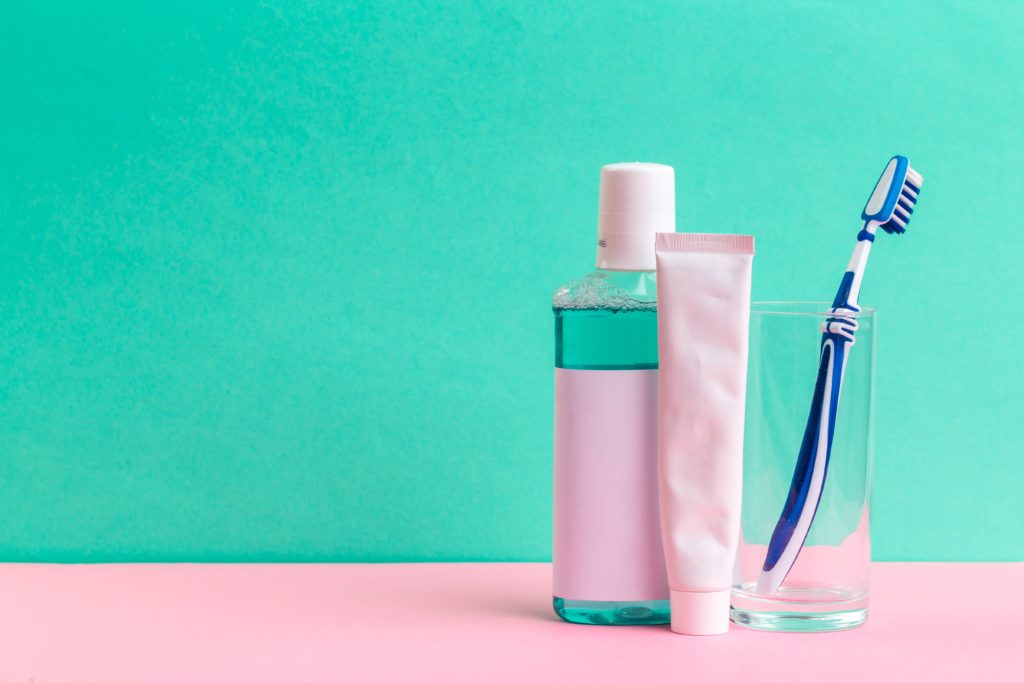Maintaining good oral hygiene is crucial for overall health, and mouthwash plays a significant role in this routine. Alongside brushing and flossing, using an appropriate mouthwash can help keep your mouth clean, fresh, and free from harmful bacteria. Mouthwash reaches areas that brushing and flossing alone might miss, making it an essential component of a comprehensive oral care routine.
Mouthwash has been the subject of various misconceptions over the years. Some believe it’s a substitute for brushing, while others doubt its effectiveness. Throughout this blog, we will debunk these myths and clarify the actual role of mouthwash in oral health.
With a myriad of mouthwash options available in the market, selecting the right one can be overwhelming. This blog aims to provide you with a comprehensive guide to picking the best mouthwash tailored to your specific oral health needs, preferences, and concerns.
Understanding Different Types of Mouthwash
Before diving into the selection process, it’s essential to understand the different types of mouthwash available. Cosmetic mouthwashes primarily focus on providing temporary breath freshness, while therapeutic mouthwashes contain active ingredients that address specific oral health issues. Natural mouthwashes are formulated using plant-based extracts and avoid synthetic chemicals.
Key Ingredients to Look for in Mouthwash
When choosing mouthwash, consider key ingredients such as antimicrobial agents (e.g., Chlorhexidine, CPC) that combat harmful bacteria causing plaque, gingivitis, and bad breath. Fluoride plays a vital role in preventing cavities and strengthening enamel, suitable for various age groups. Additionally, essential oils (e.g., Eucalyptol, Thymol, Menthol) offer a natural and refreshing way to combat bad breath, leaving your mouth invigorated. For those with sensitivity or a preference for natural ingredients, mouthwashes containing aloe vera and other plant-based extracts provide soothing and gentle care.
Assessing Personal Oral Health Needs
Assessing your personal oral health needs is crucial when selecting the best mouthwash for you. Identifying specific concerns like bad breath, gum disease, or tooth sensitivity is essential in finding a suitable match. Additionally, considering factors such as dental restorations or undergoing treatments like braces will help inform your decision. Moreover, personal preferences like taste, texture, and sensitivity to certain ingredients can also influence your choice of mouthwash, and we will guide you in finding a product that aligns perfectly with your preferences.

Choosing the Right Mouthwash for Specific Needs
When selecting the right mouthwash for your specific needs, we have tailored recommendations for various concerns. For those seeking to combat bad breath, there are mouthwashes that effectively target and neutralise halitosis-causing factors. To prevent cavities and promote enamel health, fluoride-containing mouthwashes are a good option, and often contain other beneficial ingredients. If you have sensitive teeth and gums, there are mouthwashes designed to provide relief and protection for delicate oral tissues. Individuals with braces, bridges, or dental restorations will find specific mouthwash options to maintain oral health and preserve dental work. Moreover, for those preferring chemical-free options, effective natural alternatives that promote oral health without harsh chemicals have also been developed.
Tips for Using Mouthwash Effectively
To maximise the benefits of mouthwash, knowing the correct usage techniques is essential. Proper usage ensures that the active ingredients reach the areas they are intended to target, providing you with the best possible outcomes for your oral health. When using mouthwash, follow these tips to get the most out of your daily oral care routine:
- Measure the Right Amount: Read the label on your mouthwash bottle and measure the recommended amount using the cap or a designated measuring cup. Avoid using more than the suggested amount, as excessive mouthwash can lead to undesirable side effects.
- Swish, Don’t Swallow: Pour the mouthwash into your mouth and swish it around for the recommended time, typically 30 seconds to one minute. Be sure not to swallow the mouthwash, as it may contain ingredients that could be harmful if ingested.
- Timing Matters: Use mouthwash at the optimal time during your oral care routine. It is generally best to use mouthwash after brushing and flossing. This allows the mouthwash to reach areas that brushing and flossing might have missed, providing comprehensive coverage.
- Spit, Don’t Rinse: After swishing the mouthwash, spit it out into the sink. Avoid rinsing your mouth immediately afterward, as this may wash away the residual benefits of the mouthwash. Allow the active ingredients to continue their work on your teeth and gums.
- Avoid Eating or Drinking Immediately: Refrain from eating or drinking for at least 30 minutes after using mouthwash. This will give the active ingredients enough time to take effect and provide the desired benefits.
Creating a consistent oral care routine is vital for maintaining good dental health. Incorporating mouthwash usage seamlessly into your daily regimen can significantly enhance your oral hygiene efforts. To make it a habit:
- Set Reminders: Place a bottle of mouthwash next to your toothbrush as a visual reminder to use it daily. You can also set alarms on your phone to prompt you to use mouthwash at the appropriate time.
- Make It Part of Your Routine: Integrate mouthwash usage into your morning and evening brushing and flossing routine. By consistently incorporating mouthwash into your daily regimen, you’ll make it an essential and effective part of your oral care habits.
While mouthwash is generally safe, some individuals may experience side effects. These can vary depending on the type of mouthwash used and individual sensitivities. If you notice any of the following side effects, consider the appropriate actions:
- Oral Irritation: Some people may experience mild irritation or sensitivity in their mouth after using certain mouthwash products. If this occurs, discontinue use and consult your dentist for alternative recommendations.
- Dry Mouth: Alcohol-based mouthwashes can contribute to dry mouth for some individuals. If you experience this side effect, opt for alcohol-free mouthwashes or those specifically designed to combat dry mouth.
- Allergic Reactions: In rare cases, individuals may have allergic reactions to certain mouthwash ingredients. If you develop any signs of an allergic reaction, such as swelling, rash, or difficulty breathing, seek immediate medical attention.
Mouthwash should be seen as a complementary addition to regular brushing and flossing, rather than a substitute. When used correctly and in conjunction with a comprehensive oral hygiene routine, mouthwash can significantly contribute to a healthier and happier smile.
Remember that the right mouthwash for you may vary depending on your specific needs, so don’t hesitate to consult with your dentist or dental hygienist for personalised recommendations. With the knowledge gained from this guide, you can confidently choose the best mouthwash to support your oral health journey.

